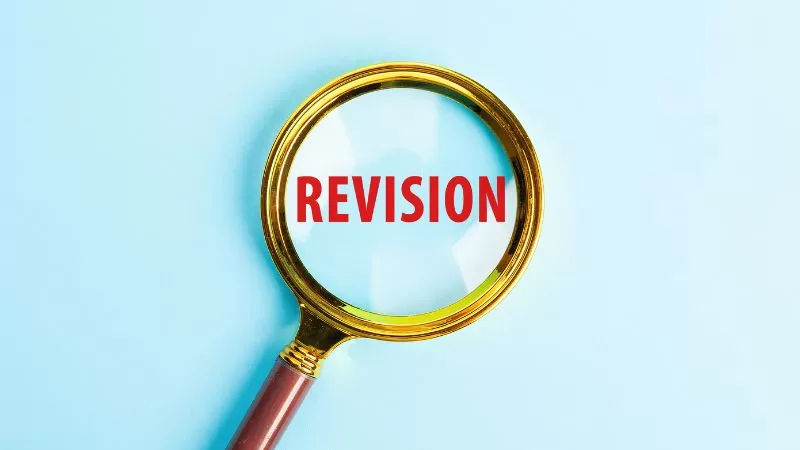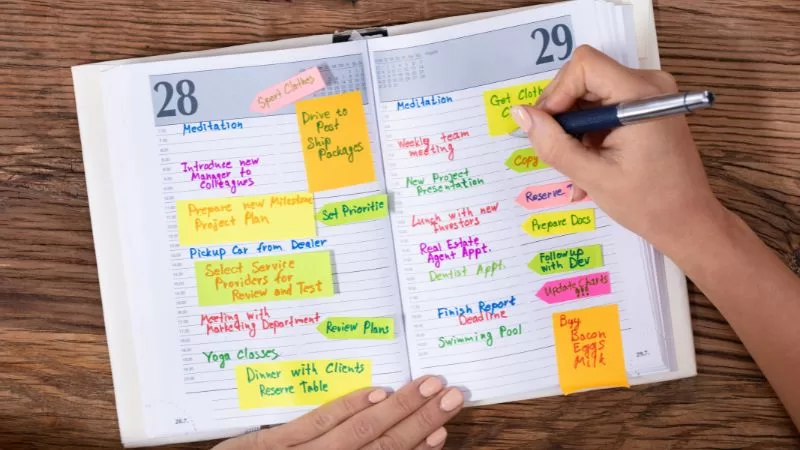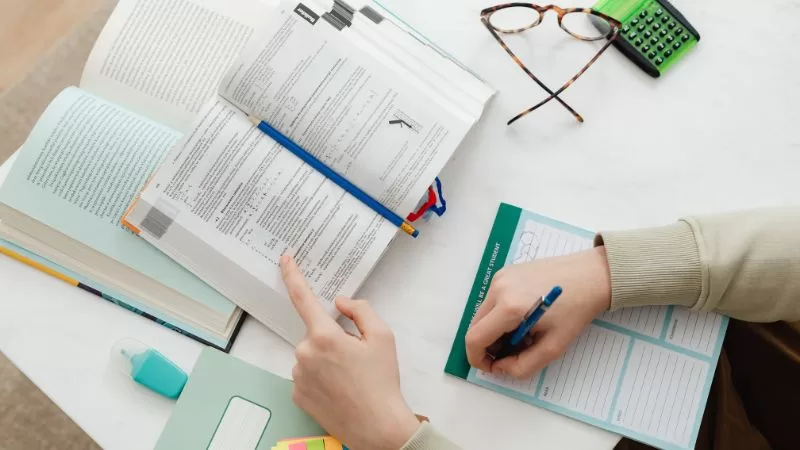Memorization plays a crucial role in the learning process, especially for students aiming to excel in exams. In this comprehensive guide, we will delve into seven highly effective memorization techniques that top-performing students swear by.
From the magic of early morning study sessions to the importance of note-taking, repetition, and creative memory aids, we’ll uncover how these methods can help you become a memorization maestro. So, let’s embark on a journey to discover the art of memory retention that can significantly enhance your academic success.
1. Early Mornings Are Energetic

The first memorization technique we explore is the remarkable impact of studying in the early morning. Early hours, often referred to as the “golden hours,” have an abundance of energy and freshness.
This is when your mind is at its peak performance. Many students and successful individuals swear by this time to tackle complex subjects and tasks. It’s a window when distractions are minimal, and the world is still asleep.
During these hours, your cognitive abilities are amplified, making it easier to focus on your studies. By starting your day with challenging subjects, you’ll notice that your comprehension and retention levels are notably higher. The mind is like a sponge, ready to soak up knowledge, making early mornings a magical time for learning.
2. Write Everything Down

The act of writing is a powerful memorization tool. When you jot down information, you engage multiple senses, reinforcing memory retention. As you write, you not only see the words but also use motor skills to form letters and sentences. This dual engagement enhances your ability to remember.
Effective note-taking involves more than transcribing every word your teacher says. It’s about capturing key points, summarizing complex ideas, and organizing information in a way that makes sense to you. Color-coding, highlighting, and using diagrams or charts can further enhance your note-taking strategy.
The process of writing helps you process information more deeply, which is essential for memory consolidation. So, next time you’re studying, grab a notebook and pen to take notes – you’ll be amazed at the difference it makes in your ability to remember facts and concepts.
3. Repeat, Repeat, Repeat

Repetition is a fundamental memorization technique. It’s the backbone of learning because it strengthens your memory’s pathways. When you repeatedly expose yourself to information, it becomes ingrained in your long-term memory.
After taking notes, don’t stop there. Go over them multiple times. Each repetition solidifies the knowledge in your mind, making it easier to recall when needed. Consider this process as building a mental highway – each review lays down another layer of asphalt, making the path smoother and faster to navigate.
You can use various methods for repetition, such as flashcards, self-quizzing, or teaching the material to someone else. The more you engage with the information, the more firmly it becomes embedded in your memory. Remember, repetition is not about rote memorization but about strengthening your understanding of the topic.
4. Recall What You Learn

Testing your memory is a crucial aspect of effective memorization. Rather than simply reviewing your notes, challenge yourself to recall the information without looking at them. This technique, known as active recall, forces your brain to work harder, reinforcing your memory’s connections.
Active recall can be as simple as covering the text and trying to write down the main points or explaining a concept aloud to an imaginary audience. This method has a twofold benefit.
Firstly, it reveals gaps in your knowledge, highlighting areas that require further study. Secondly, it enhances your memory by repeatedly retrieving and reinforcing the information.
Practice active recall regularly to improve memory recall during exams. This technique is particularly effective when combined with spaced repetition – revisiting information at increasing intervals – as it optimizes the retention of knowledge.
5. Stick to a Schedule

Consistency is the key to successful memorization. Establishing a fixed study schedule helps your brain prepare for learning at specific times. Over time, this routine makes it easier to concentrate during these periods.
When you stick to a schedule, you signal to your brain that it’s time to focus and absorb information. This conditioning improves your concentration and productivity during study sessions.
Additionally, maintaining a regular study routine reduces procrastination and the likelihood of forgetting to study.
Consider factors like your energy levels and natural rhythms when setting your schedule. Some individuals are more alert in the morning, while others hit their stride in the evening.
Find the time that works best for you, and create a consistent study timetable around it. Your brain will thank you for the predictability and structure, which can lead to improved memory retention.
6. Use Memory Tricks

Memory tricks can be valuable allies in the quest for effective memorization. Two particularly effective techniques are mnemonics and visual aids.
Mnemonics: Mnemonics are memory aids that use associations to help you remember information. They come in various forms, including acronyms, rhymes, and acrostics. For example, “PEMDAS” helps remember the order of operations in mathematics: Parentheses, Exponents, Multiplication, Division, Addition, Subtraction. Mnemonics simplify complex concepts into memorable phrases or patterns, making it easier to recall information during exams.
Visual Aids: Visual aids, such as diagrams, mind maps, and charts, create a clear mental image of the subject matter. Visual representations help you grasp complex relationships between ideas and concepts. These images serve as memory triggers, helping you recall information more efficiently. Visual aids work particularly well for subjects with intricate structures or interconnected ideas.
Incorporate mnemonics and visual aids into your study routine to make learning more engaging and effective. These creative memory tools can transform
challenging topics into manageable, memorable information.
7. Keep Bed and Study Table Apart

It’s tempting to study in the comfort of your bed, but this habit might hinder effective memorization. Your brain associates your bed with relaxation and sleep, not focus and concentration. To maximize your study efforts, set up a dedicated study area at a desk or table.
A separate study space helps create a mental boundary between leisure and work. When you sit at your study table, your brain understands that it’s time to concentrate. This separation minimizes distractions and allows you to maintain focus on your studies.
Moreover, a well-organized study area with all your materials readily available can enhance your efficiency. It eliminates the need to hunt for books or supplies, saving precious study time. So, while the allure of studying from your cozy bed is strong, creating a distinct study zone can significantly boost your memorization capabilities.
Conclusion
Effective memorization is a critical skill for academic success. These seven techniques – early morning studies, note-taking, repetition, active recall, scheduling, memory tricks, and maintaining a separate study area – can transform your learning experience.
Experiment with these methods to find the ones that suit your learning style and needs best. Remember that everyone’s learning journey is unique, so adapt these strategies to enhance your memory and excel in your studies.




